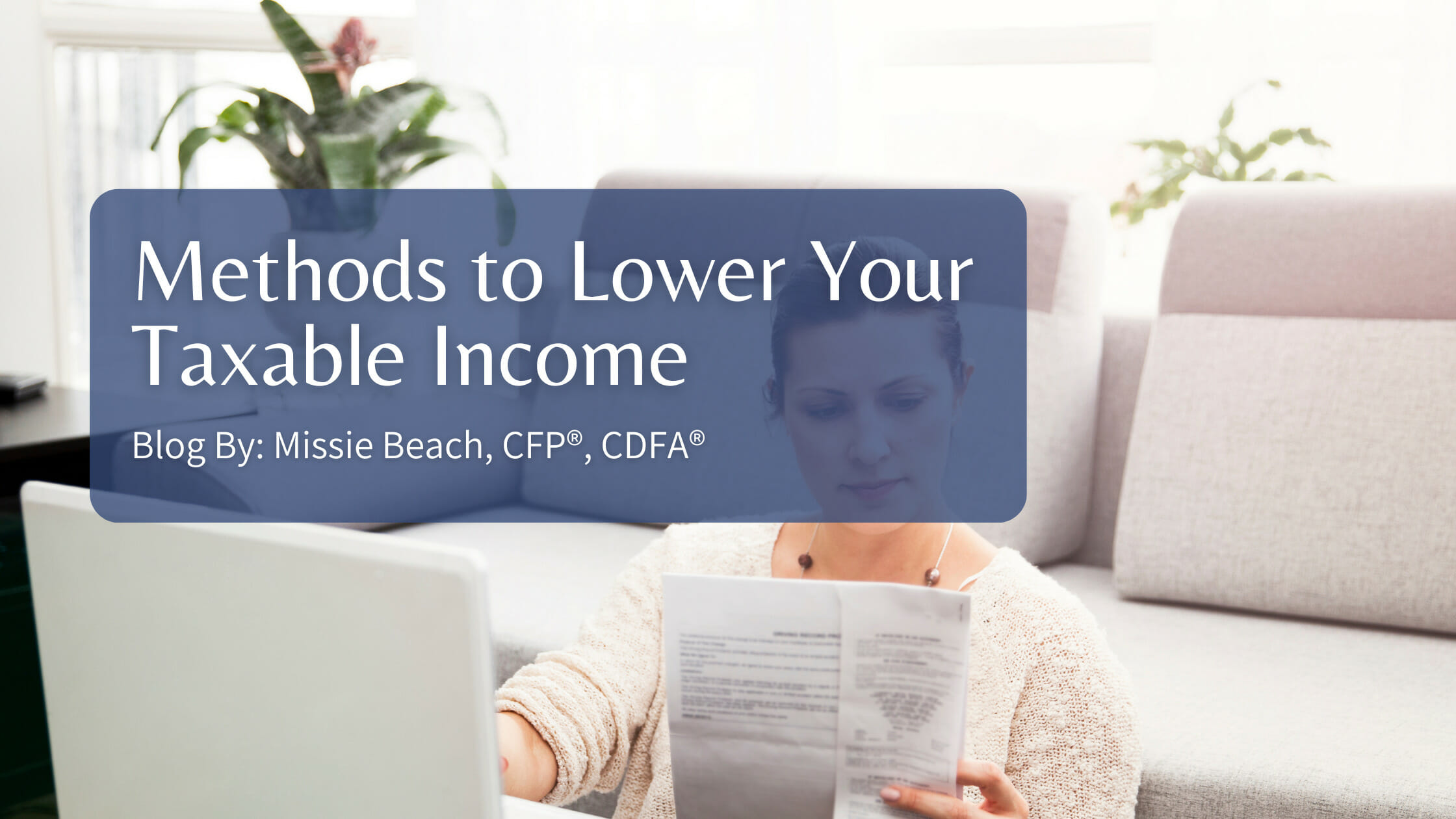Methods to Lower Your Taxable Income

You may have recently filed your taxes and begrudgingly paid a hefty sum to Uncle Sam and thought, there must be ways to give away less of your hard-earned money. Make sure you are taking advantage of all the strategies available to help lower your taxable income.
Contribute to a Retirement Account
If you are a salaried employee receiving a W-2, pre-tax contributions to your employer’s 401(k) plan will reduce your taxable income. On the other hand, if you don’t have a 401(k) at work, you can contribute to an IRA which is also deductible if your income stays within the prescribed limits.
Take All Deductions
Although the standard deduction amount has risen, it’s still worth claiming deductions for charitable donations, property taxes, mortgage interest, ad valorem taxes on cars, and medical expenses. Then, compare it against the standard deduction amount and determine if you can itemize and lower your taxable income.
Utilize All Employer Pre-tax Benefits
Enroll in all pre-tax benefits like commuter benefits, dependent care, flexible spending accounts, or a health savings account, which can also lower your taxable income.
Select a High Deductible Health Plan with a Health Savings Account (HSA)
An HSA account is triple tax-advantaged. These contributions reduce your taxable income in the current year. Additionally, the account grows tax-free, and distributions are not taxed when taken out for qualified medical expenses.
Apply for Any Education Credits
If you or a child are attending college, lower your taxable income with the Lifetime Learning Credit or the American Opportunity Credit if your income falls below the allowable limit.
Buy Tax-Exempt Bonds
If you are in a high-income tax bracket, investing in tax-exempt bonds in your regular investment account might make sense. The interest generated from these bonds is not taxed on your federal return.
Open a Small Business
Turn a side gig into a small business if you are actually pursuing a profit. This allows you to take business deductions that will offset your taxable income. You can also open your own solo 401(k) plan and make tax-deductible contributions.
It’s imperative to consult with a CPA to determine which strategies will work and apply to your unique tax situation. Consequently, listening to friends for strategies is bound to have unintended negative consequences, so make sure you consult a tax professional.
Have more questions? Contact Us
Missie Beach, CFP®, CDFA®
Senior Financial Advisor
Share This Story, Choose Your Platform!
Wiser Wealth Management, Inc (“Wiser Wealth”) is a registered investment adviser with the U.S. Securities and Exchange Commission (SEC). As a registered investment adviser, Wiser Wealth and its employees are subject to various rules, filings, and requirements. You can visit the SEC’s website here to obtain further information on our firm or investment adviser’s registration.
Wiser Wealth’s website provides general information regarding our business along with access to additional investment related information, various financial calculators, and external / third party links. Material presented on this website is believed to be from reliable sources and is meant for informational purposes only. Wiser Wealth does not endorse or accept responsibility for the content of any third-party website and is not affiliated with any third-party website or social media page. Wiser Wealth does not expressly or implicitly adopt or endorse any of the expressions, opinions or content posted by third party websites or on social media pages. While Wiser Wealth uses reasonable efforts to obtain information from sources it believes to be reliable, we make no representation that the information or opinions contained in our publications are accurate, reliable, or complete.
To the extent that you utilize any financial calculators or links in our website, you acknowledge and understand that the information provided to you should not be construed as personal investment advice from Wiser Wealth or any of its investment professionals. Advice provided by Wiser Wealth is given only within the context of our contractual agreement with the client. Wiser Wealth does not offer legal, accounting or tax advice. Consult your own attorney, accountant, and other professionals for these services.





